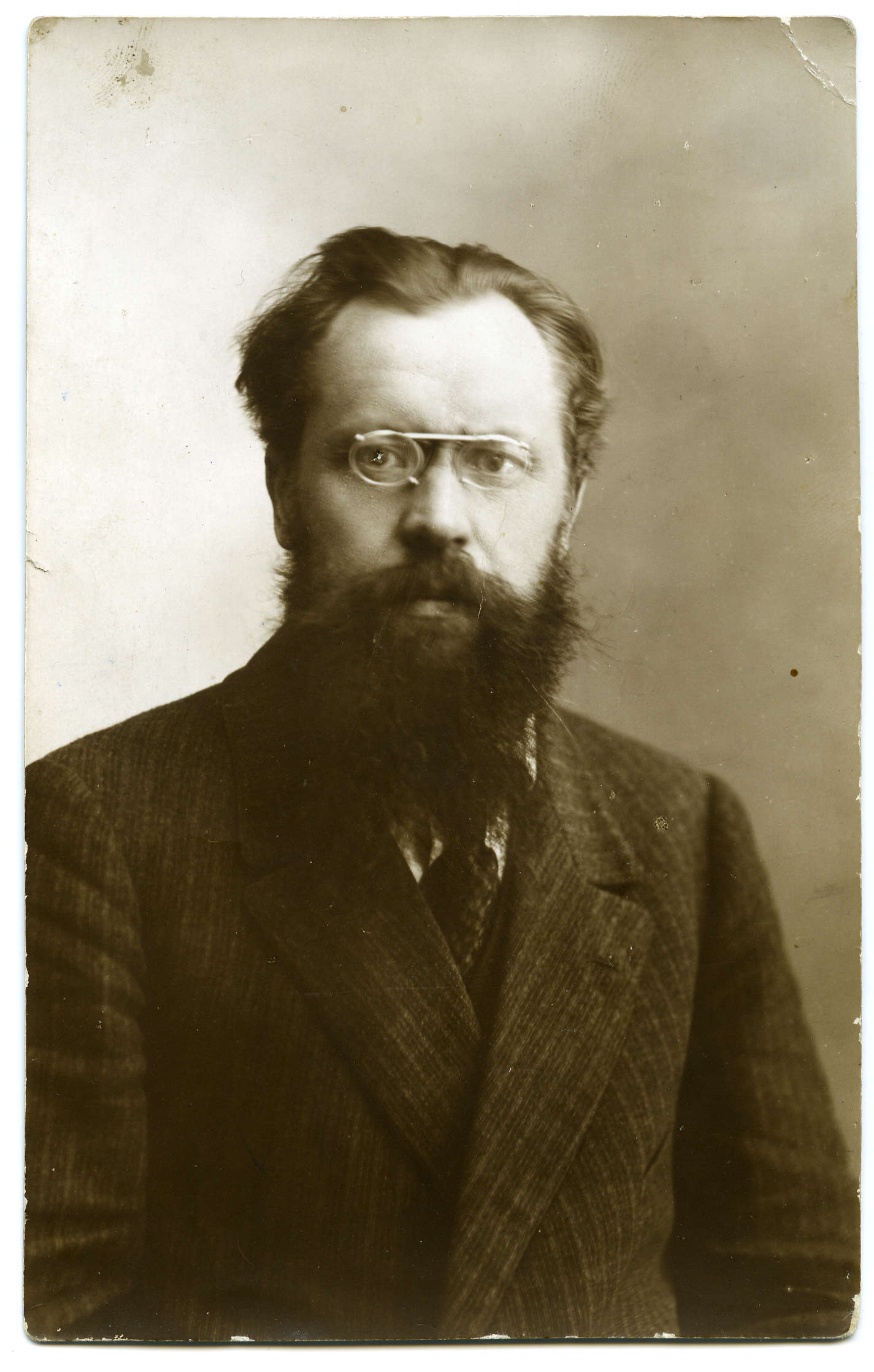
Juhan Lilienbach
Juhan Lilienbach (24/12 October 1870 – 9 May 1928) was a revolutionary poet and publisher.
Lilienbach was born in Viru County and attended Paatna village school. For some time, he worked in Viru County but in 1901 settled in Tallinn. There, he joined Mikhail Kalinin’s circle of social democrats. In 1905, he started publishing political literature supporting the revolution and in 1909 founded the publishing house Mõte. Lilienbach left Estonia with Bolsheviks in 1918 and settled in what was then called Petrograd (St Petersburg, Leningrad). There, he also acted as a publisher, for example, as head of the Külvaja publishing house. He died after a long illness in Leningrad and is buried in Novodevichy Cemetery.
In his young days, Lilienbach collected folklore; his first poems were published in the press in the final decades of the 19th century. At the beginning, his poetry was mainly epigonic; his way of expression changed clearly after he embraced revolutionary ideas. A vivid example of that time’s working-class poetry is his collection Ommikulaulud (‘Morning Songs’, 1909) where an essential part belongs to satirical poetry. Lilienbach used stylistic devices known from folk songs. In his later poetry, the main emphasis is on the themes of revolution.
Lilienbach played an essential role as a publisher. He concentrated on introduction of the Marxist world view, working-class movement and various socio-political aspects. He published partly the first part of K. Marx’s Capital (1910–1914), various satirical pamphlets and albums, e.g., Edasi (‘Forward’) I and II (1905–1906).
In 2015, Lilienbach’s long poem Me tahame elada (‘We Want to Live’) was performed and recorded by the Estonian rapper Beebilõust (Andrus Elbing).
A. K. (translated by I. A.)
Books in Estonian
Poems
Ommikulaulud. Tallinn: Mõte, 1909, 124 lk.



